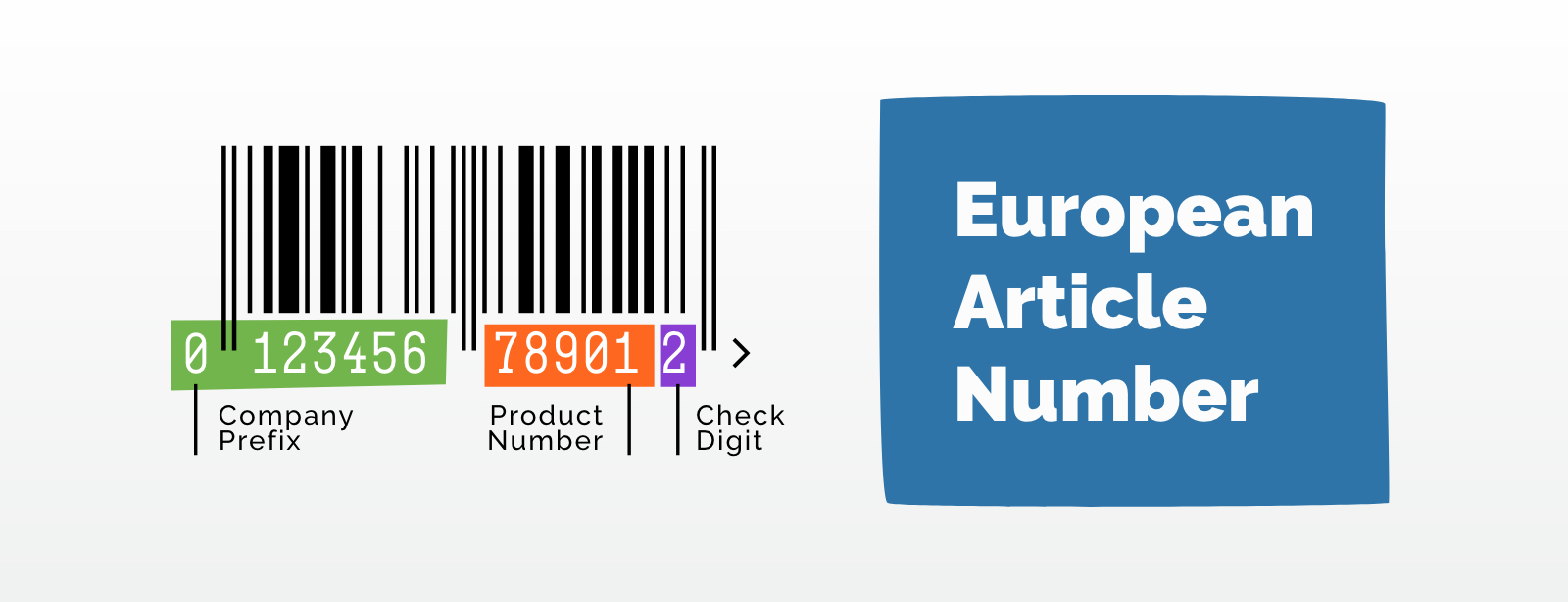- Product
- Solution for
For Your Industry
- Plans & Pricing
- About us
- Resources
For Your Industry
As you delve into the world of e-commerce, you might come across acronyms like EAN, GTIN, and SKU. But what exactly do they mean? For newcomers, this new vocabulary can be overwhelming.
In this article, we’ll demystify what an EAN is and how it impacts your store. By the end, you’ll have a comprehensive understanding of what a European Article Numbering (EAN) code is, why it’s essential, and where it’s most commonly used.
Let’s dive in!

The European Article Numbering code is a unique series of 12 to 13 digits that helps identify specific products in your inventory. Think of it as a fingerprint for products, ensuring each one is uniquely identifiable. Accompanied by a barcode, this code is typically found on product packaging and can be scanned by computers for quick identification, much like how items are scanned at a supermarket.
EAN codes facilitate efficient product searches, reduce human error in processing, and create a standardized system that replaces inconsistent, handwritten labels.
EAN codes are crucial for anyone selling products to a European audience. While not necessary for digital products, they are essential for physical goods. Implementing EAN codes boosts your product’s value and makes it easier for consumers to find what they’re looking for.
Big marketplaces like Google and Amazon require valid EAN codes for all products listed on their platforms. This requirement not only enhances visibility but also ensures compliance with international selling standards.
EAN codes are used for products sold both online and in physical stores. The legitimate vendor for EAN codes is GS1, which operates on a subscription model. GS1 charges an annual fee based on the number of codes you need.

Not all products require an European Article Numbering code. Here are some exceptions:
Non-European Sales: If you’re not selling in Europe, you don’t need an European Article Numbering code. However, other regions may have their own coding requirements.
Crafts and Art Products: Sellers in these categories can apply for brand registry or an European Article Numbering exemption on platforms like Amazon and Flipkart. Brand registry requires presenting trademark certificates, while European Article Numbering exemptions must be reapplied for monthly.
For e-commerce to be truly effective, standardization is key. Without systems like EAN, there would be conflicting numbering systems, leading to errors in returns and shipping. European Article Numbering codes ensure efficiency and reliability in product identification.
By understanding and implementing European Article Numbering codes, you can significantly improve your business processes and stand out in competitive marketplaces.
No, EAN codes are only necessary for physical products.
Yes, but you must apply for a brand registry or an EAN exemption.
This depends on the variety of products you sell. Each unique product variation (color, size, pattern) requires a separate EAN code.
GS1 is the legitimate vendor, although other online vendors may offer codes, their legitimacy can vary.
We use cookies to provide you with an optimal experience, for marketing and statistical purposes only with your consent, which you may revoke at any time. Please refer to our Privacy Policy for more information.






Missing an important marketplace?
Send us your request to add it!